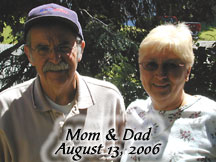Yesterday I stopped by my parents' house to talk to my mom about (FINALLY) contacting an elder-care lawyer to help her safeguard her money and home when my dad finally has to get put away. I brought ice cream. You would have thought I handed my dad a million dollars when I gave him that hideous purple sundae (black raspberry). He eats like a child, getting ice cream, whipped cream and hot fudge all over his face and not knowing enough to wipe it off. Plus the farts, oh the farts.
I had downloaded a trial game at home that I thought my mom would like, plus she's getting a weird error message on her computer, so we went downstairs for a while to try out the game and see if I could get the error (I couldn't). She told me she'd read about a study where rats with Alzheimer's could retrieve lost memories and make new ones.
I tried to explain about brain atrophy but she didn't want to hear it.
Someone posted a link on Yahoo Answers to an article which I guess is about the same study.
It starts out:
Mental stimulation and drug treatment may help people with brain ailments such as Alzheimer's disease regain seemingly lost memories.
Calling Alzheimer's a "brain ailment" is like calling .... oh, I can't even come up with a good analogy. An ailment is a cold, a stubbed toe, a headache. It's a minor inconvenience. "Having a bad day, dearie, oh yes, I've got a touch of the Alzheimer's you know, but I'll be right as rain tomorrow."
Scientists used two methods to reverse memory loss in mice with a condition like Alzheimer's -- placing them in sort of a rodent Disneyland to stimulate their brains, and also using a type of drug that encourages growth of brain nerve cells.
I thought brain cells couldn't regrow, only connections between neurons?
If apparently lost long-term memories could be retrieved, this suggested the memories had not been actually erased from the brain.
If the brain is atrophied, where are the lost memories being retrieved FROM?
The researchers used genetically engineered elderly mice in which they were able to activate a protein that triggered brain pathology very much like that of people with Alzheimer's, with atrophy and loss of nerve cells.
I'm going to go off topic now, into metaphysics.
If you believe in some sort of god-spirit-soul-thing outside you, then I guess you can logically believe that something outside you can hold your memories. Like the Akashic Records, a grand place "out there" where every memory from every lifetime of every person is recorded. Since we can't hold all those memories in our little brains/bodies, they are stored elsewhere. (IMO, this is the true nature of God--all of our memories and thoughts and intent all working together.) If this is the case, than brains have very little to do with memory. They hold a form of short-term memory that's only good for this body--memories of this lifetime. The real repository is out there somewhere, accessible to our souls and god and people like Edgar Cayce.
If you believe this, then yes, no matter how damaged a brain is, as long as the soul is still attached to the body (another topic for another day), the memories can be retrieved.
Think of it this way. If you back up your files onto a thumb drive and then your hard drive crashes, you might forget you had the thumb drive and think the files are gone. But if you find the hard drive and plug it in, voila, there are your files. Think of the Akashic Records as a vast thumb-drive for your life, and all lifetimes if you believe in reincarnation and recycling.
Do mice have Akashic thumb drives? I don't know. I'm not a mouse. I would think not, but who am I to say.
If you are mister or missus scientist and you're laughing at all that, and to you memories are chemical pathways in the brain, then if the brain is atrophied and the pathways erased and the neurons dead, then memory and personality are erased forever.
I'll have to enlarge this and put it on my main website as an article.
Comments welcome, as always, especially from my more technical readers.
The final Verse
6 months ago


No comments:
Post a Comment